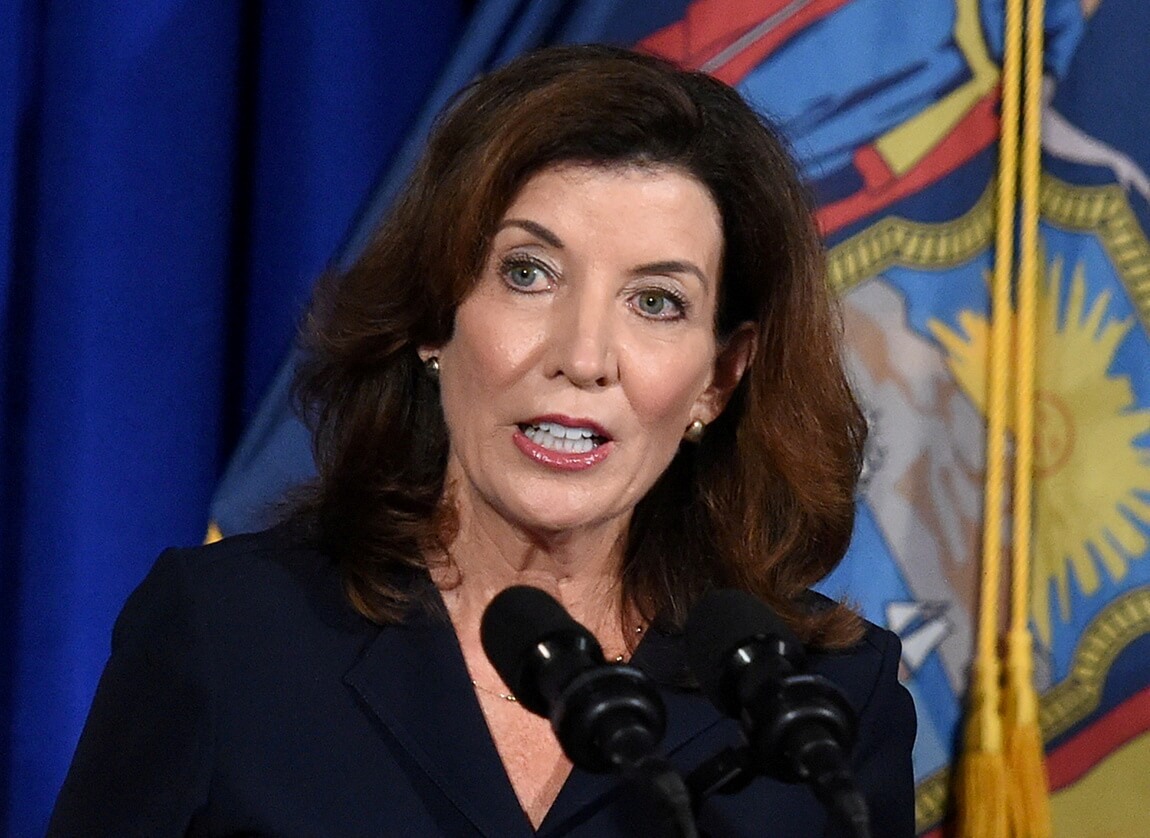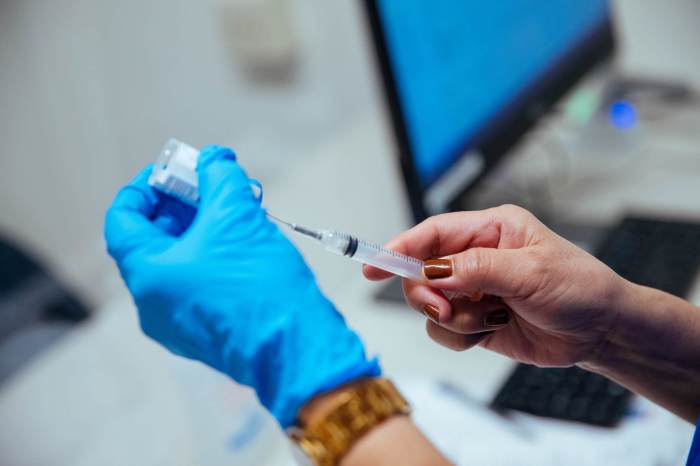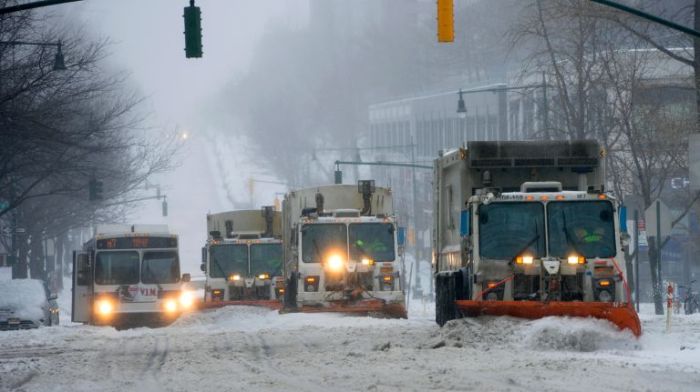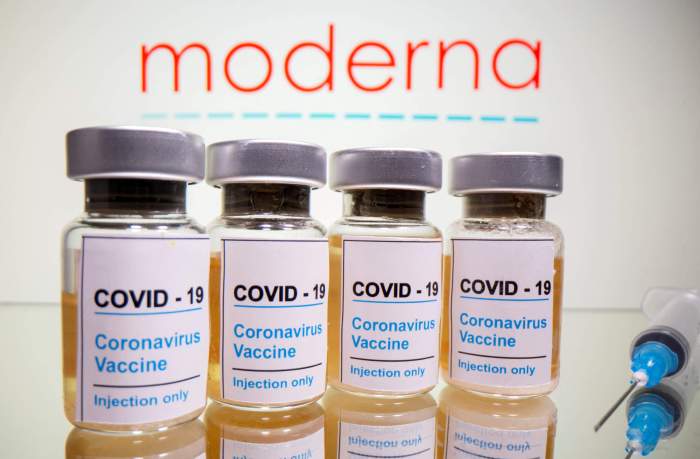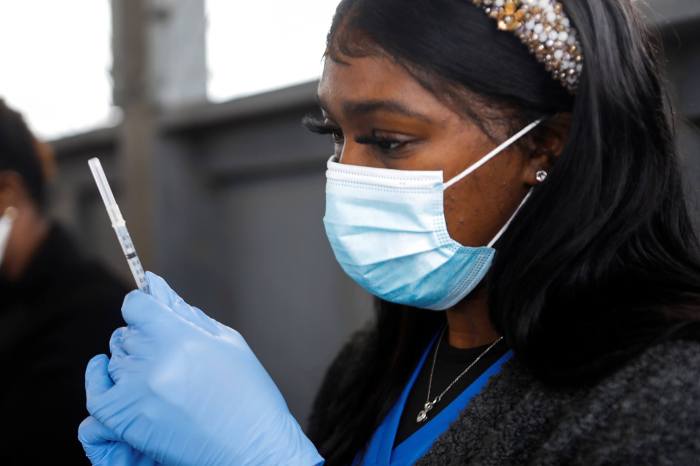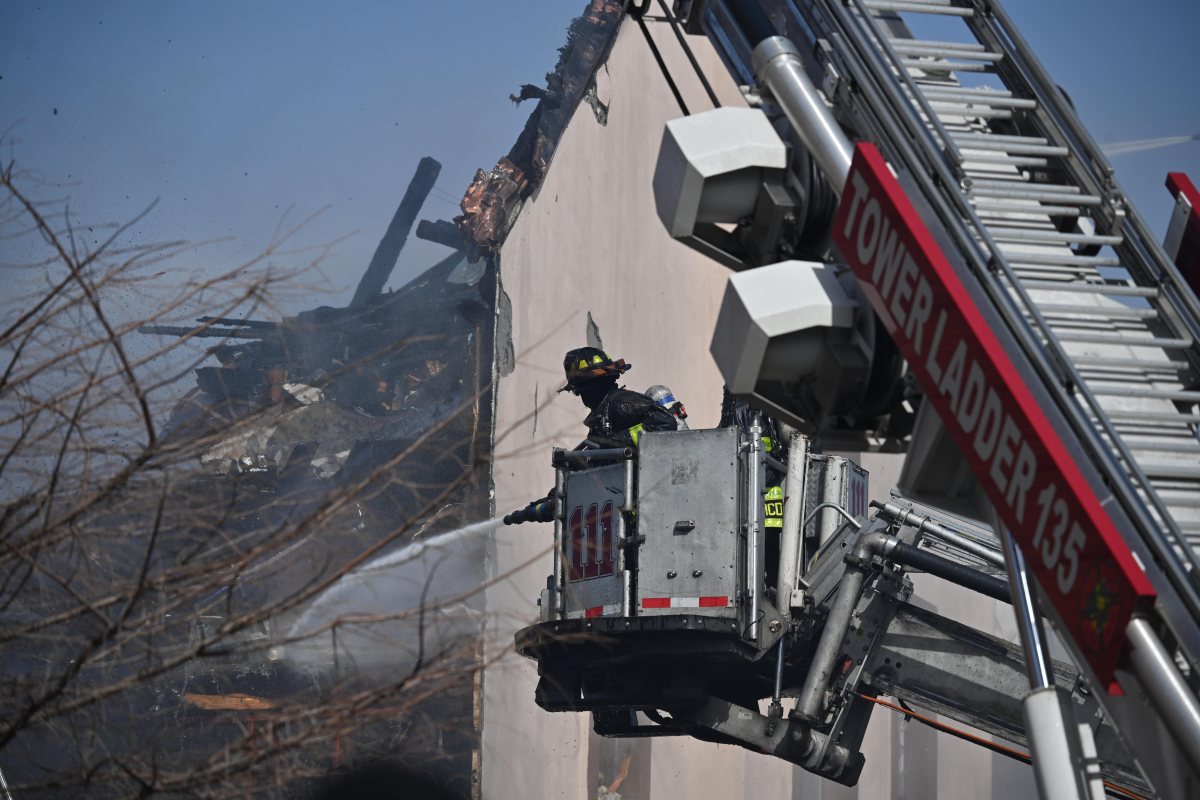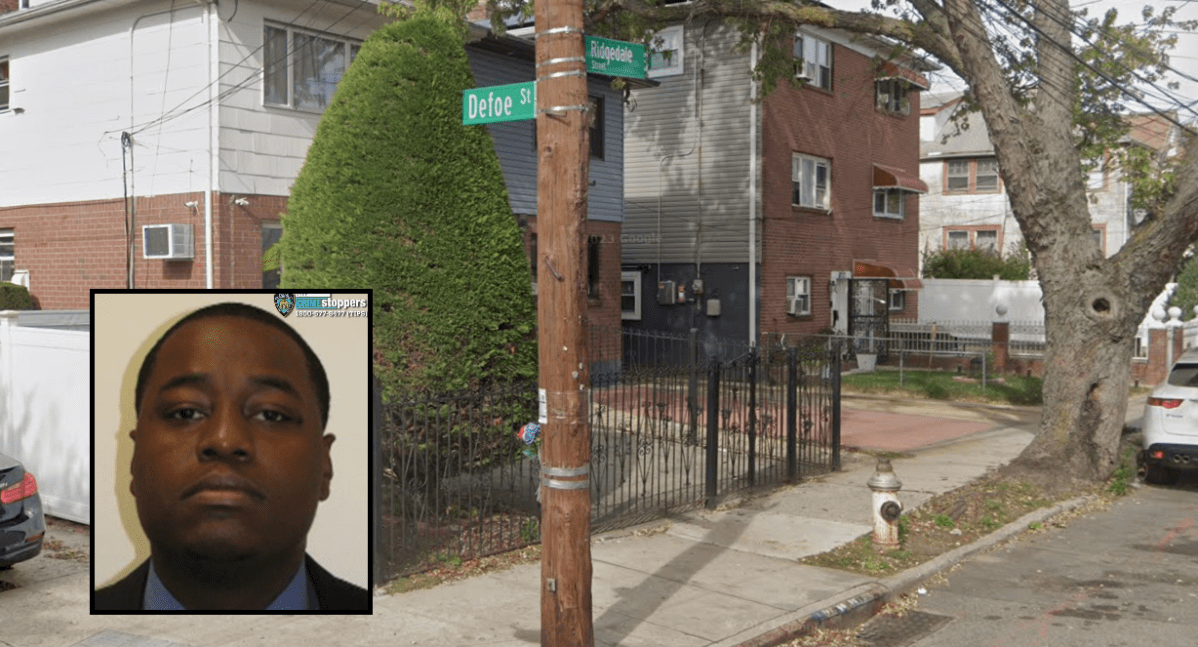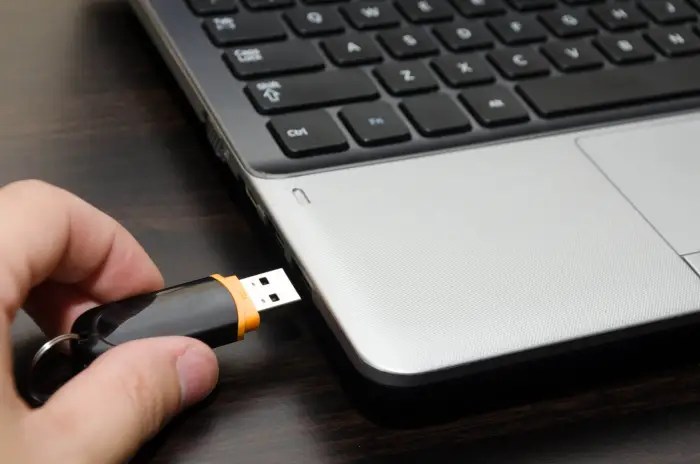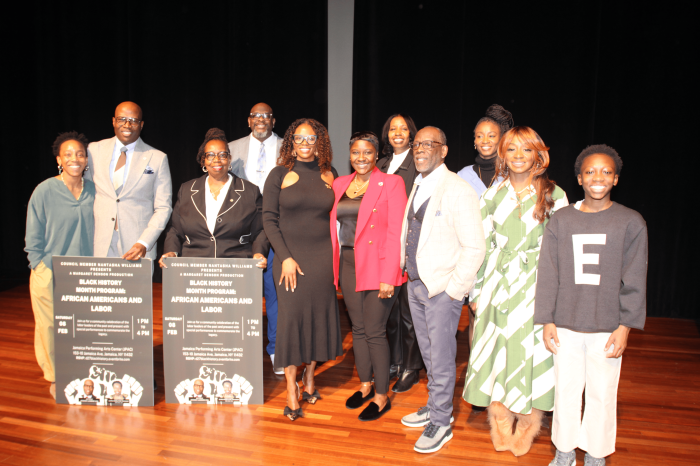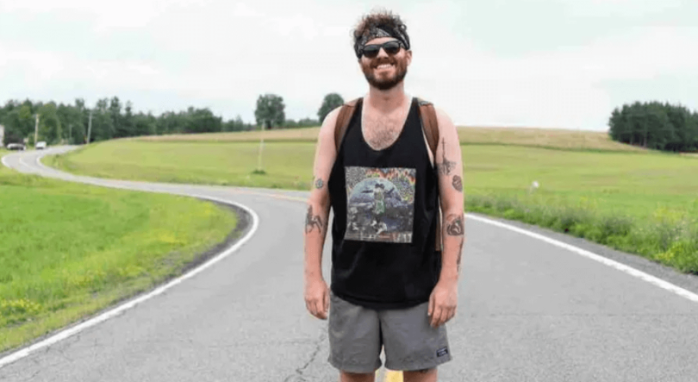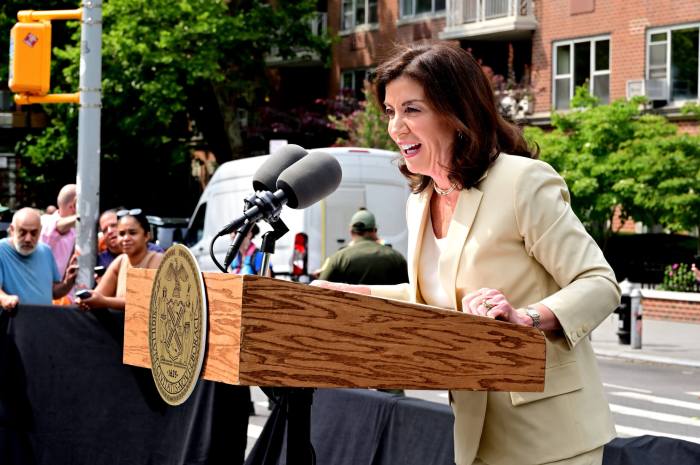Governor Kathy Hochul announced Tuesday she’s making $65 million in state funding available for COVID-19 booster shot distribution by local government health departments, including New York City.
“Boosters are just as important, because as much as I’m an optimist and we all thought we’d be turning the page on anything related to the pandemic — certainly by this time — we have not,” Hochul said at a press briefing in her native Buffalo on Aug. 31. “The battle rages, we have to fight back, and as sure I’m standing here, there may be another variant coming again and we have to be prepared.”
Hochul vowed to collaborate more closely with local governments than her scandal-scarred predecessor, former Governor Andrew Cuomo, to combat the resurgent virus, supporting area public health officials without stepping on their toes.
“I will not be micromanaging, but I’ll be giving guidance based on your input, I’ll be giving you the cover you need,” she said. “I’ll be there to be the ally, but I will not be imposing state people and locations on all of you without consultation.”
She added that local governments have the best knowledge on how to bring the shots to the people.
“You figure it out, you know your communities better than anybody,” she said. “Tell me how to take it literally to people door-to-door after churches, at senior centers, drive-through, you know all the options, you’ve been there before.”
The statements marked a change in tone from former Governor Andrew Cuomo, who regularly feuded publicly with Mayor Bill de Blasio, most notably when the scandal-scarred former state executive overruled his city counterpart on shutdowns to stem the spread in 2020.
The New York City Health Department advised immunocompromised New Yorkers aged 12 and older to get their booster shot as of Aug. 16.
Conditions to qualify include receiving cancer treatment, organ transplant patients on immunosuppressive therapy, those who got stem cell transplants within the last two years, moderate or severe primary immunodeficiency, advanced or untreated HIV, and folks getting active treatment with a high dose of corticosteroids or other drugs that moderately or severely weaken your immune system, according to the Health Department.
Eligible New Yorkers can get the third dose at least four weeks after receiving their second shot of either the Moderna or the Pfizer vaccine, and DOH says you should get the same brand as previous doses, if possible.
Additional doses of the one-and-done Johnson & Johnson vaccines are currently not authorized by the federal Food and Drug Administration, but the FDA expects that booster shots will be needed for people who got that vaccine as well.
The Empire State’s rate of vaccinations among those who are 18 or older who got at least dose is 77% as of Aug. 31 at 11 a.m., which Hochul said was “not good enough,” and the rate lowers to 69.9% for adults who are fully vaccinated.
For all eligible New Yorkers, including those aged 12–17, the rate is only 64.9% for at least one dose and 58.5% for those who are completely inoculated.
“It only really works when you have two doses, my friends,” said Hochul.
While one dose of the vaccines offers some protection, getting both shots dramatically lowers the likelihood of infection and serious disease from COVID-19.
The rate of New Yorkers who tested positive across a seven-day average as of Aug. 30 was 3.35%, according to state data.



